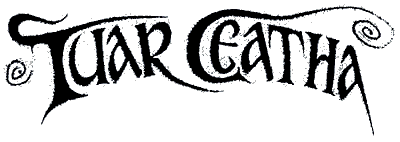

"Gaelic is my national language but if is not my mother tongue" W.B. Yeats
Throughout these islands, we are witnessing the death of the ancient and beautiful Celtic languages, which is a great sadness. The tongues of the Manx and Cornish are gone, Scots Gaelic clings onto windswept islands, and only Welsh has seen something of a revival in recent years. lrish Gaelic sits in delicate balance, with attempts to promote its use (e.g. Telifis na Gaeilge) being fought with an ovewhelming surge of (Ameriean) English usage. Historically, the decline of the language began as English colonialism set its roots in the country. But we cannot point the finger solely at the oppressor. lrish people themselves, including one of the country's greatest leaders, Daniel O'Connell, saw Gaelic as an impediment to progress, and were content to let it die. Even so, Irish was spoken by hundreds of thousands of people (on both sides of the hedge), from Béal Feirste (Belfast) to Corcaigh (Cork), and from Baile átha Cliath (Dublin) to Gaillimhe (Galway), until the country, its people, culture and language were dealt an appalling blow by the Great Famine and subsequent emigration.
Nearly two generations after the Famine, an attempt was made to put a spark back into the hearts and tongues of the people. ln 1893, Douglas Hyde (an Anglo-lrish Protestant) formed the Gaelic League to revive the language. This was adopted as the great cultural project of 'republican' nationalism, leading to the Easter Rising of 1916 and formation of an lrish Free State in 1922.
In almost 75 years of autonomy, and despite efforts of leaders such as DeValera, who pronounced Gaelic as the first national language of the country, the Gaelic Revival has been a total and unqualified failure. Unfortunately, fewer than 20,000 people use Gaelic as their everyday language (although thousands more can speak it). It is considered the language of the poor and uneducated, and in this highly-sophisticated consumerist society we live in, to speak your own common language is to plant yourself back to the time of thatch and creel, not bungalow and BMW. Instead of trying to 'catch up' with the pace and style of the Western World, we should take a look at what we still have in this Western Isle, and at what we are treading over in our hurry. It may seem to be totally romantic and impractical to yearn for a nation of native speakers, but if we don't hold fast to our identity, then it slips from our grasp, and we lose touch with ourselves, and our very essence.
Níl
aon tinteán mar do thinteán féin
There's no fireplace like your own fireplace
|
Home | Articles | Starsigns | Contacts | Recycling | Links | E-mail |
||||||